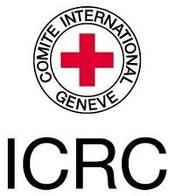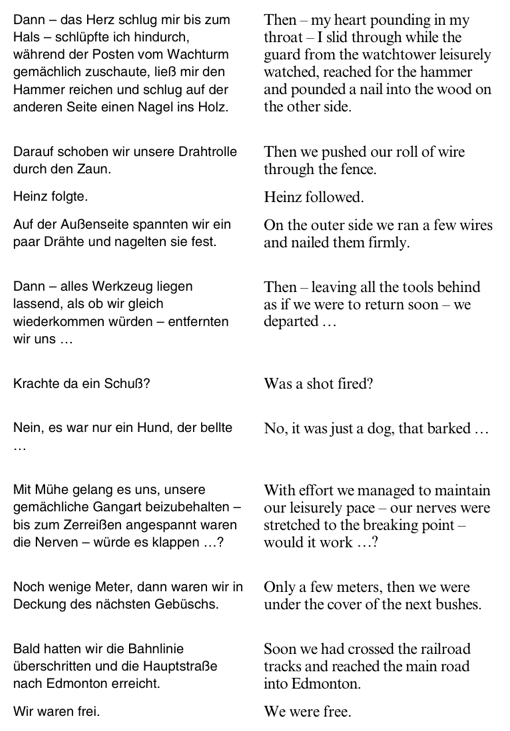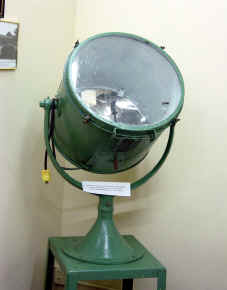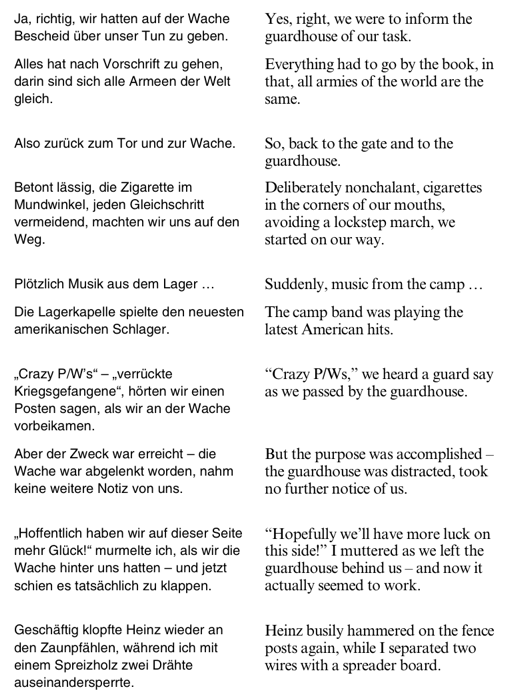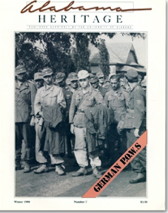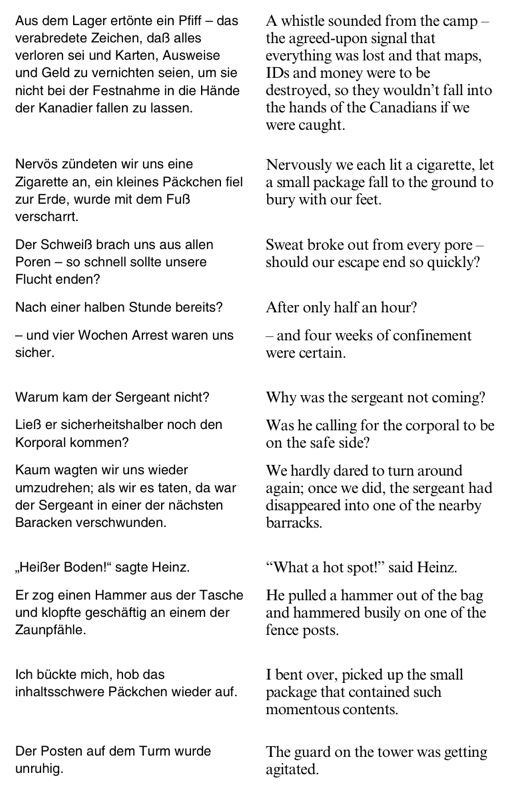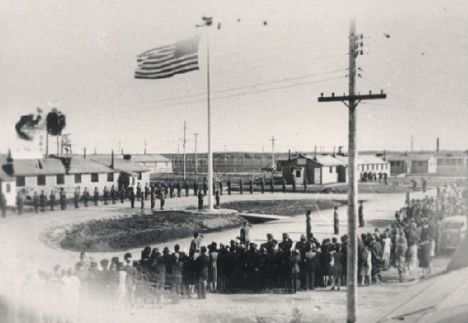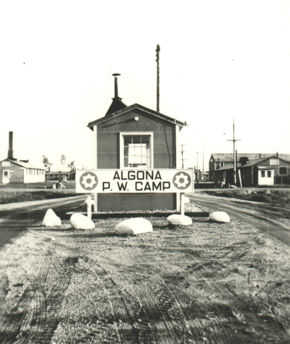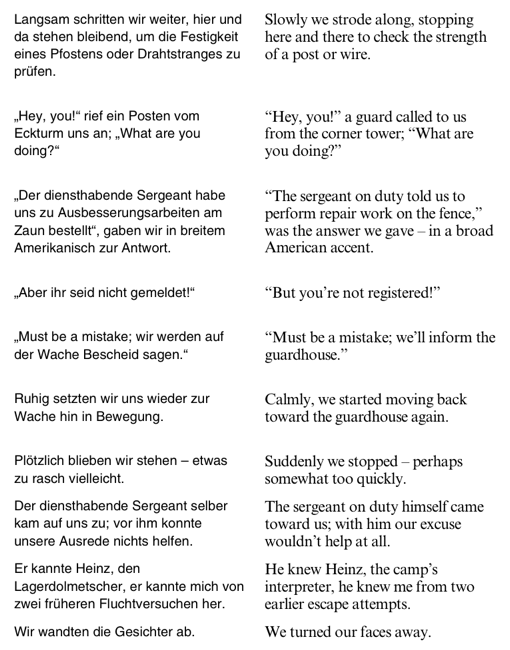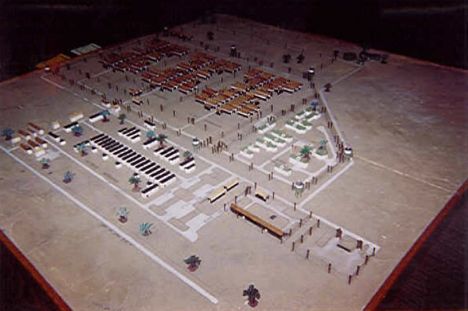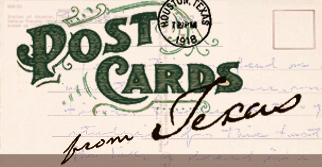
|
|
June 2010 Archive
The different work requirement for officers vs. enlisted personnel was a key part of a (fictional) WW2 movie: The Bridge on the River Kwai. Starting at about 45 seconds into this clip (with the word "officers" a bit garbled):
The British commander objects, quoting the "other than officers" portion of the Geneva Convention. Neither wants to give in.
Lots more at filmsite ... though the quotes don't seem to match the film. POWs often worked outside the camps ... and got paid. The official name of the Geneva Convention that governed during WW2 is "Convention relative to the Treatment of Prisoners of War. Geneva, 27 July 1929". Here are some excerpts from SECTION III - WORK OF PRISONERS OF WAR. (emphasis added, corrections of apparent typos are marked in brackets)
Even more surprising (at least to me!): officers were paid even without working:
Months passed uneventfully at Camp Wainwright. Here are some excerpts starting from early 1946. (skipped days are not marked; all typos in original; the diary no longer shows the day of the week) January:
February:
March:
April:
The last page of Chapter I: Dann - das Herz schlug mir bis zum Hals - schlüpfte ich hindurch, während der Posten vom Wachturm gemächlich zuschaute, ließ mir den Hammer reichen und schlug auf der anderen Seite einen Nagel ins Holz. Darauf schoben wir unsere Drahtrolle durch den Zaun. Heinz folgte. Auf der Außenseite spannten wir ein paar Drähte und nagelten sie fest. Dann - alles Werkzeug liegen lassend, als ob wir gleich wiederkommen würden - entfernten wir uns ... Krachte da ein Schuß? Nein, es war nur ein Hund, der bellte ... Mit Mühe gelang es uns, unsere gemächliche Gangart beizubehalten - bis zum Zerreißen angespannt waren die Nerven - würde es klappen ...? Noch wenige Meter, dann waren wir in Deckung des nächsten Gebüschs. Bald hatten wir die Bahnlinie überschritten und die Hauptstraße nach Edmonton erreicht. Wir waren frei. Then - my heart pounding in my throat - I slid through while the guard from the watchtower leisurely watched, reached for the hammer and pounded a nail into the wood on the other side. Then we pushed our roll of wire through the fence. Heinz followed. On the outer side we ran a few wires and nailed them firmly. Then - leaving all the tools behind as if we were to return soon - we departed ... Was a shot fired? No, it was just a dog, that barked ... With effort we managed to maintain our leisurely pace - our nerves were stretched to the breaking point - would it work ...? Only a few meters, then we were under the cover of the next bushes. Soon we had crossed the railroad tracks and reached the main road into Edmonton. We were free.
"... suddenly a dog was alarmed, a flashlight lit up, footsteps approached. With a few leaps, we disappeared sideways behind a pile of wood, crawling farther through the deep snow." (page 18) Images adapted from markhillary and mescon at Flickr Music from Bach's Toccata Adagio Fugue: http://www.musopen.com/music.php?type=piece&id=468 In case you didn't click through to read the entire Encyclopedia of Alabama article yesterday, here's more:
There are similar stories from camps across the US and Canada. The Museum of East Alabama includes an exhibit on Camp Opelika:
The Encyclopedia of Alabama has a great article on POW camps in the state:
(There's lots more in the article.) It wasn't practical to return POWs to Germany right away, so life in Camp Wainwright continued. After discovering how some Allied POWs were treated in Germany, rations were reduced (apparently at the request of the British Government, which had formal control of the POWs in Canada). Excerpts from July 1945: (skipped days are not marked)
If anyone takes the time to look up these articles, please send copies! (typos are in the original)
Ja, richtig, wir hatten auf der Wache Bescheid über unser Tun zu geben. Alles hat nach Vorschrift zu gehen, darin sind sich alle Armeen der Welt gleich. Also zurück zum Tor und zur Wache. Betont lässig, die Zigarette im Mundwinkel, jeden Gleichschritt vermeidend, machten wir uns auf den Weg. Plötzlich Musik aus dem Lager ... Die Lagerkapelle spielte den neuesten amerikanischen Schlager. "Crazy P/W's" - "verrückte Kriegsgefangene", hörten wir einen Posten sagen, als wir an der Wache vorbeikamen. Aber der Zweck war erreicht - die Wache war abgelenkt worden, nahm keine weitere Notiz von uns. "Hoffentlich haben wir auf dieser Seite mehr Glück!" murmelte ich, als wir die Wache hinter uns hatten - und jetzt schien es tatsächlich zu klappen. Geschäftig klopfte Heinz wieder an den Zaunpfählen, während ich mit einem Spreizholz zwei Drähte auseinandersperrte. Yes, right, we were to inform the guardhouse of our task. Everything had to go by the book, in that, all armies of the world are the same. So, back to the gate and to the guardhouse. Deliberately nonchalant, cigarettes in the corners of our mouths, avoiding a lockstep march, we started on our way. Suddenly, music from the camp ... The camp band was playing the latest American hits. "Crazy P/Ws," we heard a guard say as we passed by the guardhouse. But the purpose was accomplished - the guardhouse was distracted, took no further notice of us. "Hopefully we'll have more luck on this side!" I muttered as we left the guardhouse behind us - and now it actually seemed to work. Heinz busily hammered on the fence posts again, while I separated two wires with a spreader board.
Here's the second in the series of short "teaser" book trailer videos. "We were free. An indescribable feeling of joy overcame us, as, with every passing minute, we increased our distance from the camp. ...and we began running out of joy." (pages 7 and 9, chapters 1 and 2) Images adapted from wili, varun, and varun at Flickr Music from Bach's Toccata Adagio Fugue: http://www.musopen.com/music.php?type=piece&id=468 The Alabama Heritage magazine has an online reprint of "Inside the Wire: Aliceville and the Afrika Korps" by Randy Wall. A classic opening:
The camps offered real benefits to local communities:
POWs arrive:
There's lots more in the article, including several interesting sidebars. One of the largest POW camps in the U.S. was located in Aliceville, Alabama. It had the capacity to hold 6,000 POWs. The Aliceville Museum and Cultural Arts Center includes a permanent collection that features:
The museum also shows a 14 minute documentary which includes interviews with former POWs and military guards. Canadian Escapades concluded in April 1945, but history marched onward. Excerpts from May 1945: (skipped days are not marked)
Moving on to June ... and a reminder that the war raged on elsewhere:
A detailed count was included at the end of the month: Officers:- 448 Army, 82 Navy 257 Airforce N.C.O.s 16 " 2 " 7 " Privates 178 " 52 " 27 " Civilians:- 19 Total PW Ration Strength in Camp:- 1086. Aus dem Lager ertönte ein Pfiff - das verabredete Zeichen, daß alles verloren sei und Karten, Ausweise und Geld zu vernichten seien, um sie nicht bei der Festnahme in die Hände der Kanadier fallen zu lassen. Nervös zündeten wir uns eine Zigarette an, ein kleines Päckchen fiel zur Erde, wurde mit dem Fuß verscharrt. Der Schweiß brach uns aus allen Poren - so schnell sollte unsere Flucht enden? Nach einer halben Stunde bereits? - und vier Wochen Arrest waren uns sicher. Warum kam der Sergeant nicht? Ließ er sicherheitshalber noch den Korporal kommen? Kaum wagten wir uns wieder umzudrehen; als wir es taten, da war der Sergeant in einer der nächsten Baracken verschwunden. "Heißer Boden!" sagte Heinz. Er zog einen Hammer aus der Tasche und klopfte geschäftig an einem der Zaunpfähle. Ich bückte mich, hob das inhaltsschwere Päckchen wieder auf. Der Posten auf dem Turm wurde unruhig. A whistle sounded from the camp - the agreed-upon signal that everything was lost and that maps, IDs and money were to be destroyed, so they wouldn't fall into the hands of the Canadians if we were caught. Nervously we each lit a cigarette, let a small package fall to the ground to bury with our feet. Sweat broke out from every pore - should our escape end so quickly? After only half an hour? - and four weeks of confinement were certain. Why was the sergeant not coming? Was he calling for the corporal to be on the safe side? We hardly dared to turn around again; once we did, the sergeant had disappeared into one of the nearby barracks. "What a hot spot!" said Heinz. He pulled a hammer out of the bag and hammered busily on one of the fence posts. I bent over, picked up the small package that contained such momentous contents. The guard on the tower was getting agitated. Movies have trailers, so how about books? Here's the first of a series, each just long enough to try to get someone to click through and learn more. Thanks much to Kyle for production work and music selection.
"Soon we had crossed the railroad tracks and reached the main road (into Edmonton). We were free." (Chapter 1, page 7) Images adapted from http://www.flickr.com/photos/pinkmoose/2294666591/ and http://www.flickr.com/photos/albertoog/1263007350/ Music from Bach's Toccata Adagio Fugue: http://www.musopen.com/music.php?type=piece&id=468 TRACES (covered before) has 2 slideshows of the Algona, IA POW camp.
During WWII, a Camp in Algona, IA housed 10,000 German POWs. In 2004, the town opened a German POW museum with four exhibits. According to the museum's website:
Their website includes many interesting photos and stories. For instance:
Excerpts from April 1945: (emphasis added; skipped days are not marked; all typos are in the original)
But that doesn't mean Camp Wainwright is free from trouble!
Langsam schritten wir weiter, hier und da stehen bleibend, um die Festigkeit eines Pfostens oder Drahtstranges zu prüfen. "Hey, you!" rief ein Posten vom Eckturm uns an; "What are you doing?" "Der diensthabende Sergeant habe uns zu Ausbesserungsarbeiten am Zaun bestellt", gaben wir in breitem Amerikanisch zur Antwort. "Aber ihr seid nicht gemeldet!" "Must be a mistake; wir werden auf der Wache Bescheid sagen." Ruhig setzten wir uns wieder zur Wache hin in Bewegung. Plötzlich blieben wir stehen - etwas zu rasch vielleicht. Der diensthabende Sergeant selber kam auf uns zu; vor ihm konnte unsere Ausrede nichts helfen. Er kannte Heinz, den Lagerdolmetscher, er kannte mich von zwei früheren Fluchtversuchen her. Wir wandten die Gesichter ab. Slowly we strode along, stopping here and there to check the strength of a post or wire. "Hey, you!" a guard called to us from the corner tower; "What are you doing?" "The sergeant on duty told us to perform repair work on the fence," was the answer we gave - in a broad American accent. "But you're not registered!" "Must be a mistake; we'll inform the guardhouse." Calmly, we started moving back toward the guardhouse again. Suddenly we stopped - perhaps somewhat too quickly. The sergeant on duty himself came toward us; with him our excuse wouldn't help at all. He knew Heinz, the camp's interpreter, he knew me from two earlier escape attempts. We turned our faces away. Camp Hearne was part of the video we covered yesterday. A detailed model of the camp (pictured above) is on display at the Hearne Chamber of Commerce. Their site notes:
Progress on the project is being updated regularly on a blog. The Friends of Camp Hearne have useful information, including lesson plans for teachers. The PBS show History Detectives covered the camp in 2005. We could not find a video clip, but here's a transcript (PDF) of the episode. Michael R. Waters and his students put together some historical info. William Kent Brunette maintains an extensive set of links. In 1973, Robert Warren Tissing, Jr. completed his Baylor University Master's Thesis: "Utilization of Prisoners of War in the United States during World War II: Texas, A Case Study". It's available online courtesy of the Robertson County Historical Commission. From the conclusion:
|
